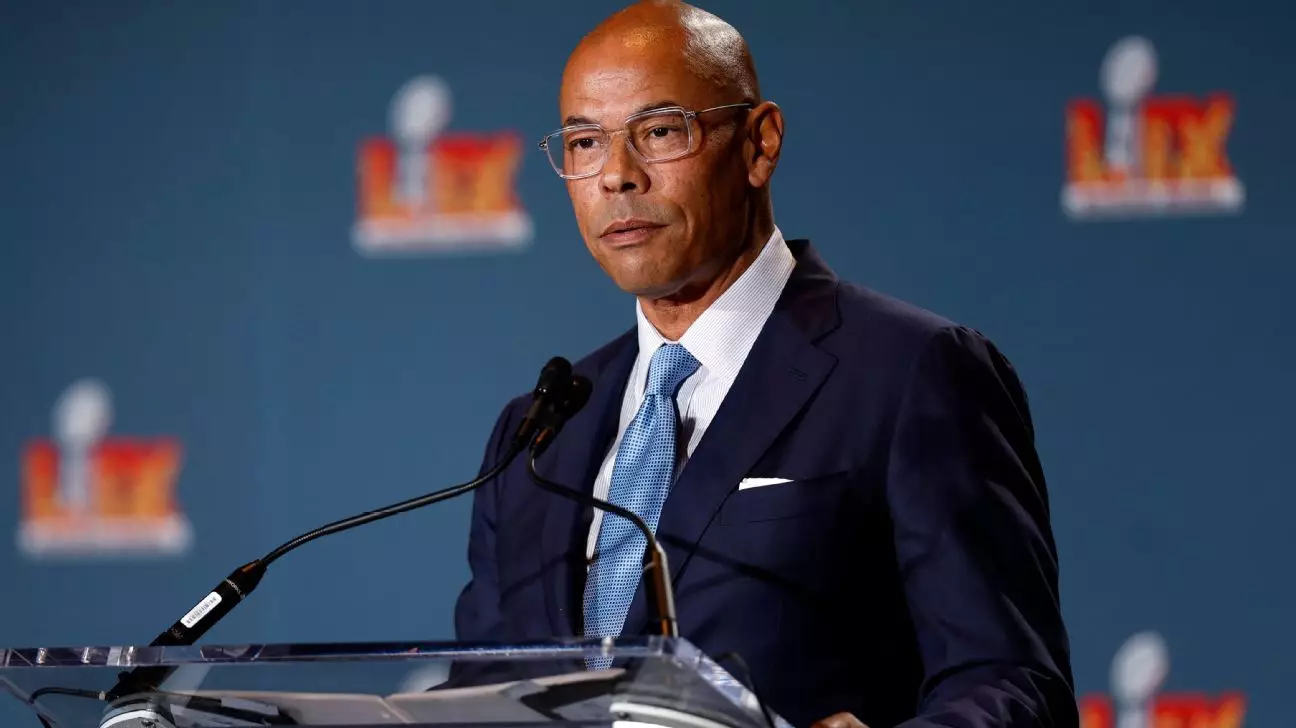The recent cascading revelations surrounding Lloyd Howell Jr.’s self-destruction as NFLPA executive director illuminate far more than individual missteps; they expose systemic flaws and a troubling abdication of ethical responsibility within the organization. Howell’s departure, sparked by undisclosed ties to private equity in defense and aerospace—industries notoriously intertwined with military-industrial complexities—raises serious questions about the integrity of NFL leadership and their commitment to the players’ best interests. This isn’t an isolated incident but a symptom of deeper issues involving conflicts of interest, secret deals, and a remarkable failure of accountability.
What makes Howell’s saga particularly unsettling is his simultaneous involvement in high-stakes financial dealings that inherently conflict with his role representing a union of athletes who rely on transparency and fairness. The fact that union lawyers flagged his dual commitments suggests awareness of a potential ethical minefield, yet Howell’s refusal to step away demonstrates either hubris or a complete disregard for the principles of union advocacy. Such actions undermine public trust and threaten to erode the very foundation of the union’s credibility. If leadership lacks the moral clarity to recognize conflicts of interest, how can players and fans be assured that their voice is truly prioritized over corporate profits or private agendas?
The Deeper Implications of a Broken System
The NFLPA’s inability—or perhaps refusal—to effectively manage these conflicts signals a larger, systemic failure. It reveals an organization caught in a web of elite interests that threaten the rights and livelihoods of the players they ostensibly serve. Turning a blind eye to founders and leaders entangled with private equity firms, especially those tied to industries like aerospace and defense, betrays a fundamental misunderstanding of the union’s core purpose: defending athletes from exploitative corporate power.
Furthermore, the ongoing FBI investigation into the league’s financial dealings, including controversial group-licensing arrangements, compounds the sense of betrayal. An organization entrusted with safeguarding athletes’ financial and legal rights appears hamstrung by clandestine deals, confidential arbitrations, and possible league meddling. The secrecy surrounding critical decisions, like the arbitration outcome that downplayed player compensation, indicates a culture of obfuscation rather than transparency. This environment not only diminishes the union’s integrity but also erodes the fundamental trust players must have in their own leadership.
The NFL’s endorsement of private equity firms to acquire minority franchise stakes—allowing these investment entities to potentially influence franchise ownership—further complicates the landscape. It suggests a prioritization of capital over community, tradition, and the players’ welfare. The potential for these financial entities to gain influence over teams raises questions about the commodification of football, where sport becomes a pawn in wealth-building strategies rather than a celebration of athletic excellence.
Rebuilding Trust Requires Courageous Action—not Cover-Ups
What is desperately required now is not merely damage control but a comprehensive overhaul rooted in transparency, accountability, and ethical leadership. The NFLPA’s historical penchant for secrecy and internal power struggles has only deepened skepticism among players and supporters alike. Leaders must confront the uncomfortable truths about conflicts of interest and actively work to implement policies that prevent corporate entanglements from compromising their objectivity.
A truly modern and progressive union would emphasize fostering open dialogue, conducting independent audits, and holding its leadership accountable to the players. This includes scrapping opaque confidentiality agreements and ensuring that all financial dealings are scrutinized in the public eye. To restore legitimacy, the NFLPA must prioritize the integrity of its mission over the allure of lucrative private partnerships that threaten to erode the union’s core values.
Moreover, a renewed focus on protecting player rights and promoting transparency would send a clear message that the organization is committed to doing right by those it represents. Such courageous leadership would stand in stark contrast to the current culture of secrecy and compromised loyalties. Only then can the NFLPA begin to repair its fractured reputation and genuinely advocate for the athletes whose labor and dreams fuel the league’s empire.

Leave a Reply